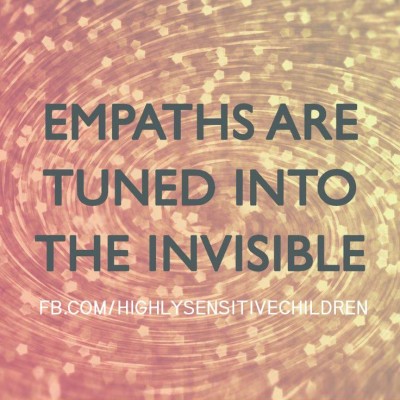
Children who are labeled as ‘highly sensitive,’ ‘intense reactors,’ or ‘overly emotional,’ may actually be empaths.
Parents who have never experienced what it feels like to take in the overload of energy that constantly surrounds us are likely to misunderstand their empathic child’s behavior.
In the same way that we breathe in air even though we cannot see it, these children take in the vibrations of the energy that is pulsating through their environment. They are tuned in to the invisible world that is communicating through people, food, water, technology, emotions, etc.
These children intuitively know what people are ‘really’ saying, no matter what words, gestures, or body language is being used. They often feel confused and overwhelmed because they can sense hypocrisy, lack of transparency, hidden agendas, and the complexities of the emotions of other people. Once overloaded, they reach a breaking point and often have tantrums or breakdowns as a way of trying to make it all ‘go away.’
It is not easy being so sensitive. Empathic children can easily get tangled up in taking in everything that is happening around them and often get negative feedback from adults. They are teased for being so sensitive and scolded for their big reactions. They are often told, ‘Just don’t let it bother you.”
It is challenging, being the parent of one of these kids. My daughter, Melissa, is an empath. I didn’t know about this stuff when she was younger and I just kept wishing she would be able to handle life in a less sensitive and emotional way. We have both come to honor and respect this amazing gift.
Mastering the challenge of parenting an empath requires being tuned in to the unique way your child takes in and processes life. These kids often need a quiet place as a retreat from the overwhelming intensity of the outside world. They need to eat unprocessed foods, served in a way that honors their sensitivity. Extra curricular and social activities that might work for other youngsters often feel emotionally and physically exhausting for empaths. They do better with a few close friends and regular time in nature, playing or listening to music, creative expression, reading, or playing alone. As they get older they might find yoga, meditation, and quiet walks as a helpful way of getting re-centered after a busy day.
Is your child an empath? If you would like support on your parenting journey with your highly sensitive child please contact us for a free consultation.
[x_author title=”About the Author”]
